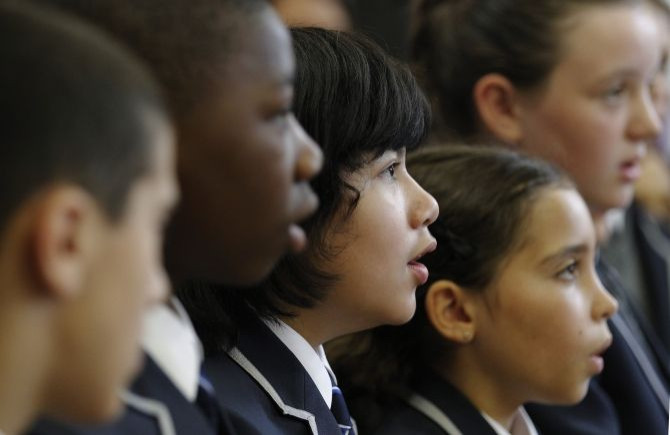UNICEF: US Children Ranked Poorly In Health, Infant Mortality Rate

If UNICEF were to distribute report cards for all 29 countries in their latest report on children's health, the United States would probably fail.
The report compared the well-being of children from 29 of the world's economically advanced countries, including the U.S., European countries, and Canada, over the course of a decade. Specifically, UNICEF looked at how eachcountry progressed in education, teenage birth rates, obesity, bullying and the use of tobacco alcohol and drugs.
The U.S. — also one of the richest on the list— ranked 26th overall, scoring only better than Lithuania, Latvia and Romania, which are economically "emerging" European countries.
Top five countries were The Netherlands, Norway, Iceland, Finland and Sweden.
"There are signs that the countries of Central and Eastern Europe are beginning to close the gap with the more established industrial economies," UNICEF stated in the report. "Although changes in methods and structure make it difficult to make comparisons between the first two issues of the UNICEF overview of child well-being it is nonetheless clear that there have been some significant changes over the first decade of the 2000s."
The worst scores came from the large number of U.S. kids growing up in poverty because of income inequality. Some of the reasons behind the high ranked countries in this category were social programs, which the Scandinavian countries drop seven percent of their GDP on, while the U.S. GDP at $48,000 is unevenly divided among the large population, according to The Washington Post.
For infant mortality rates and low birth weight, United States was ranked among the highest, with more than six per 1,000 births for infant mortality and exceeding eight percent for low birth weight. However, the Centers for Disease Control and Prevention did release updates that found infant mortality rates in the United States on the decline, by falling 12 percent since 2005.
When it comes to immunization rates, Greece and Hungary were among the highest-ranked, immunizing almost 99 percent of their native sons and daughters.
For high obesity and low exercise in children, it was no surprise United States ranked worst among the 29. After all, this is the land of the Big Mac and Big Gulp.
Of course, within the U.S., states vary significantly, and many cities nationwide have recently made significant strides in the right direction. For example, according to the Robert Wood Johnson Foundation, New York City, Philadelphi,a and cities from California and Mississippi have shown drops in childhood obesity following numerous efforts.
The entire UNICEF report could be found here.
Published by Medicaldaily.com



























